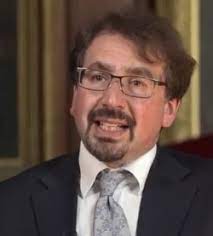Held, David

Bio: (1951-2019) British political scientist. David Held did his doctoral studies at the Massachusetts Institute of Technology, after that he taught at the London School of Economics, and now he teaches at the University of Durham. He studies international relations, cosmopolitan democracy, and globalization. Held studied how the processes of political and economic globalization affect the autonomy and sovereignty of the nation-state, but also democracy and civil rights. Held states that Economic globalization (primarily the increase of international financial markets, but also the actions of the IMF and the World Bank) has led to the fact that the nation-state has less and less opportunity to independently regulate monetary and financial policy. Political globalization - the spread of international law, the United Nations, the European Union, and international conventions - contribute to the disappearance of the Westphalian order, according to which each state had full sovereignty.
In addition to analyzing the situation, Held also made a detailed proposal on how, in the future, national and global processes can be managed through what he calls "cosmopolitan democracy" and "world governance". He proposes the reconstruction of already existing national and international political institutions. The absolute sovereignty of the state would be replaced by the distribution of sovereignty at the world, regional and national levels. At the global level, the United Nations needs to be reformed so that the UN General Assembly becomes a global assembly that would pass the most important laws - on the protection of civil, political, social, and cultural rights of individuals, world market regulation, and environmental regulation. Regional political organizations, at the level of continents, following the example of the European Union, would regulate regional relations. The nation-state would, on the principle of subsidiarity, decide on national issues. Human, political, and economic rights, as well as the freedom of all the inhabitants of the planet, would be guaranteed at the level of the whole world. In such a model of global political organization, the state would not lose its importance, it would even expand its influence because all states would decide on global issues equally while retaining most of their sovereignty over their territory.
Fields of research
Citizenship Corporations Democracy Ecology Freedom Globalization International Relations Market Parties, PoliticalMain works
Models of Democracy (1987);
Democracy and the Global Order: from the Modern State to Cosmopolitan Governance (1995);
Cosmopolitan Democracy: an Agenda for a New World Order (1995);
Global Transformations (1999);
Global Covenant (2004);
Debating Globalization (2005);
Globalization/Anti-globalization (2007);
Global Inequality (2007);
Gridlock: Why Global Corporation is Failing When We Need it the Most (2013);
Global Policy: Power, Governance and Accountability (2014).

